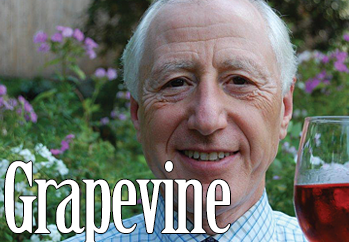Genetic Tools: First Our Ancestry, Now Mapping Our Wines and Our Palates
Opinion Advocates for ideas and draws conclusions based on the author/producer’s interpretation of facts and data.
 This week’s column originally appeared in 2018.
This week’s column originally appeared in 2018.
By Nick Antonaccio
Now that science has broken the code to examine and explore our DNA – and the DNA of multiple, diverse organisms – there have been commercial products coming to market that enable exploration of the DNA of the components of grapes.
Recently, several groups have unlocked the genetic makeup of grapevines and grape varietals that will potentially have far-reaching impacts on their quality, resistance and taste components. This research is providing winemakers previously inconceivable tools to engineer, in their vineyards and in their wineries, wines that optimize their local environmental conditions.
For example, science is developing new grapevine clones utilizing DNA advances and sophisticated modeling programs. These grapevines are more heat and drought tolerant, disease resistant and better suited to specific soils and microclimates.
Another effort is underway at the University of California, Davis. Scientists are attempting to unlock the genome of specific grape varietals affecting flavor, aroma and hardiness. First up: Cabernet Sauvignon’s 19 chromosomes. The ultimate goal? Higher yields of quality grapes, which translate to greater winery profits. The benefit to consumers? Many more quality wines available at reasonable prices on retail shelves.
With science rapidly advancing into analyzing the DNA from the perspective of vines and grapes, it would seem logical that a new focus would address DNA from the opposite perspective: consumer DNA. Just as analyses now permeate methods and techniques by which wine can be advanced (altered?) to suit a consumer’s palate, why not a scientific approach to determine how a consumer’s DNA may be suited to a particular style or varietal of wine?
DNA breakthroughs have recently crossed over from individual ancestry to the vineyard and even to the tasting room.
You’ve all heard of – and perhaps indulged in – ancestry DNA kits. Perhaps you’ve sent your saliva sample to Ancestry.com or 23 and me. Several new businesses have begun to lever off the results of these ancestry analyses. Is there a bit of Asian ancestry in your European lineage? Then why not a latent genetic preference for Pinot Noir rather than Cabernet Sauvignon?
These trait tests are now commercially available.
One such company, Helix, has gained a following in the new subset of genomes dubbed lifestyle DNA. Levering off the saliva-based DNA tests submitted to the ancestry web companies, it offers a marketplace of products that purport to drill deeper into an individual’s DNA fingerprint. For an additional cost of $15 or more at their genome app store, you can venture into other DNA strand tests for your subliminal preferences or even your innate predilections.
One of the products offered through Helix is the Vinome Wine Explorer DNA Test Kit. It claims to identify those genes in our DNA that influence our senses of smell and taste. Your genes enable you to detect certain characteristics in wine. If you are genetically predisposed to favor the taste of black cherries, you likely prefer a Cabernet Sauvignon to a Pinot Noir. If your genes align with citrus fruits, you will be more inclined to enjoy an Albarino than a Chardonnay. This sounds as valid as the genetic and health tests.
But what happens if your DNA says Albarino but your subliminal, learned life experiences say Pinot Grigio? Is there a disconnect? Wine Explorer can align these potentially disparate results. A subset of the app is a list of questions aimed at discerning your psychological preferences. It then recommends wines you may enjoy.
According to Vinome, “there are over 400 genes that code for the cells on your tongue and in your nose that allow you to distinguish between different tastes and smells. Even small variations in the DNA code for these genes can result in big changes in the way you perceive tastes and smells. Take the guesswork out of buying wine by harnessing the science of taste.”
Is Vinome (such a clever name), when coupled with your genetic test results, worth the extra $15 or more investment? What is the value to you of genetic sequencing versus old-school trial and error?
Nick Antonaccio is a 45-year Pleasantville resident. For over 25 years, he has conducted numerous wine tastings and lectures. Nick is a member and Program Director of the Wine Media Guild of wine journalists. He also offers personalized wine tastings. Nick’s credo: continuous experimenting results in instinctive behavior. You can reach him at nantonaccio@theexaminernews.com.
